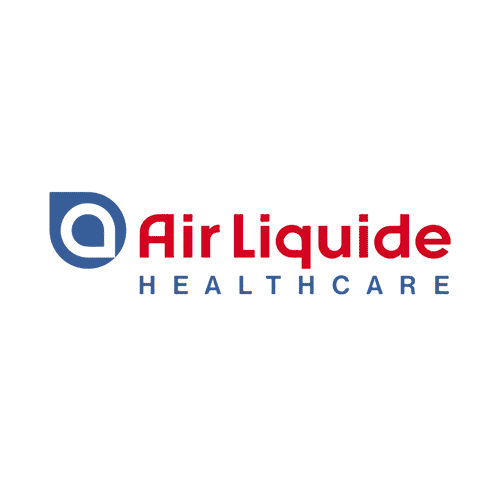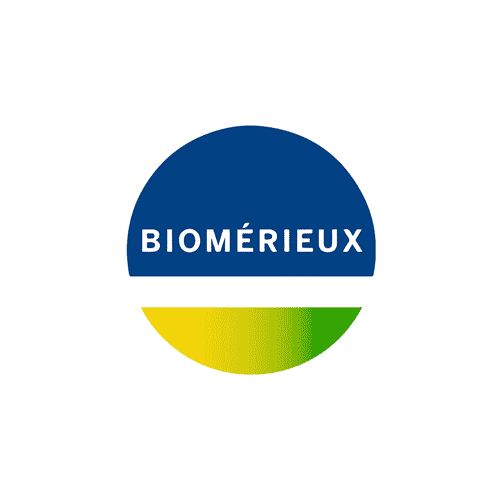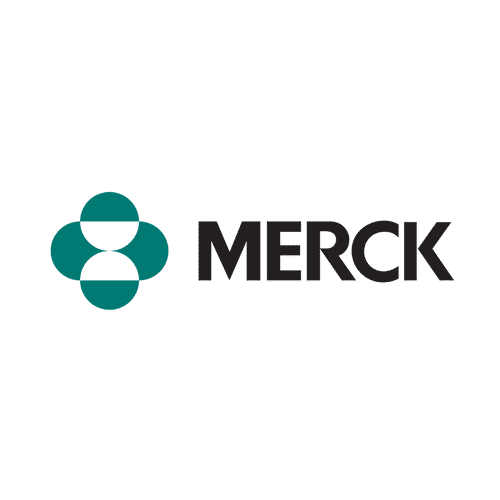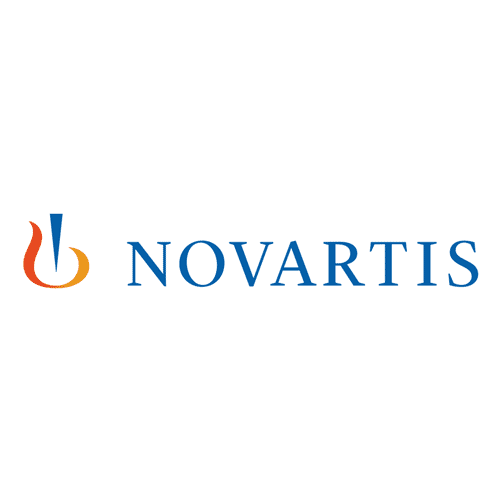
Radiopharmaceuticals

Develop innovation and access to radiopharmaceutical therapies in the market
Our specialized team supports healthcare players in exploring the potential of radiopharmaceutical products, from understanding services and devices that could facilitate their use in care centers, to implementing commercial strategies that ease the adoption of nuclear medicine and radiotherapy in patient pathways.
They trust us









The challenges related to radiopharmaceuticals
Nuclear medicine has long been focused on diagnostics and requires specific expertise and access to expensive equipment. A PET scanner can cost upwards of $2M, require a large space, and staff with unique training: nuclear medicine physicians, radiopharmacists, specialized technicians and staff. As applications grow beyond prostate cancer and other historical success to a wide range of cancers and even neurological applications, challenges in manufacturing, patient pathway, accessibility are expected to scale up with the approval of more radiopharmaceuticals:
The production of beta and alpha emitters requires often access to a cyclotron, a nuclear reactor, or other limited generators. Securing access to a sufficient supply, with the high level of quality required for injectable drugs, must be a continuing focus. After manufacturing, the short shelf-life of these products means they must be delivered quickly to the customers to be administered to patients before loss of function or the generation of significant radioactive waste by-products. Downstream, waste management becomes a challenge for hospitals and clinics as they start generating much more radioactive waste than they were just ten years ago.
What does a scalable and on-demand manufacturing process look like? How can radiopharmaceutical delivery be accelerated? What would the “Amazon” of radiopharmaceutical shipping look like?
Radiopharmaceutical preparation kits and the administration of radiopharmaceutical drugs all require specific expertise, usually with a radiopharmacist and a nuclear medicine physician. In many countries, there is a systemic shortage of this specialized workforce, In the US there are only 4000 board-certified nuclear medicine physicians. Additionally, obtaining the proper certification can represent obstacles in many countries to how many centers can diagnose or treat patients: for example, in Spain, only nuclear medicine physicians in hospitals with lead-lined rooms could treat, while in the US radio-oncologists can treat patients with fewer restrictions.
What can be done to ease the expertise requirements? What services or medical devices could be developed to increase adoption? How to partner to promote a long-term shift in clinical training for this workforce? What are the best practices to put in place in care centers?
When logistics have been established and perfected and the workforce is ready and capable, it will still be necessary to convince both patients and key providers in the patient pathways. Still few places include a nuclear medicine physician in the multidisciplinary team or tumor board, and even less value their opinion outside of diagnostic decisions. For many clinicians, and by extension patients and payers, radiopharmaceuticals are reserved for very niche indications and in second or third line. For radiopharmaceuticals to really show success in the field, nuclear medicine must become a first or secondary option and referral and collaboration between sites and clinicians must be facilitated.
What are the drivers or obstacles to increased referral and collaboration? What models can be adapted from other complex therapeutics to shape the patient pathway? How can patients and payers be convinced of the value and safety of radiopharmaceuticals?
How we support you in your projects related to radiopharmaceuticals
In the field of radiopharmaceuticals, Alcimed supports its client in exploring the patient unmet needs, and current and future competition to build a strong target value profile and inform clinical development. We can also screen existing technologies and companies to identify relevant partners for licensing, for commercialization, such as radiopharmacy networks. Defining and challenging the design of injectable solution preparation kits, or devices and services to facilitate the timely administration of radiopharmaceuticals drugs is critical for such complex products.
We support clients across the pharmaceutical industry, diagnostic players, and the academic and care provider space, e.g. Novartis, Bayer, J&J, Bracco, CNRS, major hospitals, etc. This experience and our explorer DNA makes Alcimed an ideal partner to provide a comprehensive strategic outlook on this fast-changing field.
Examples of recent projects carried out for our clients in radiopharmaceuticals
Defining the commercial and logistics strategy for a short shelf-life radiopharmaceutical
Alcimed worked with a top pharmaceutical client to plan their commercial and logistics strategy for a novel targeted radionuclide.
Across six countries, Alcimed determined in which cancer centers or clinics were most patients treated for three major indications and their level of nuclear medicine capabilities. Alcimed built hypotheses based on the best available data (diagnosis or surgery numbers percenter, presence of a PET scanner or level of accreditation, county-level cancer incidence, etc.) and challenged them during interviews with nuclear medicine physicians, pharmacists, and other stakeholders.
Alcimed deployed an automated approach to map 4000 clinics and hospitals and identify the shortest freight time to potential manufacturing sites through road and air. The exploration of this interactive map with our client helped us validate that even with a limited shelf life, most major cancer sites would be able to receive the drug and treat patients.
This enabled our client to prioritize its commercial efforts in key cities to launch, and also determine a broader market-shaping strategy to overcome capability gaps in key countries.
Determining and deploying best practices to improve the care of patients treated with a radiopharmaceutical across 50 hospitals
Alcimed supported a global pharma company to understand the obstacles to treating prostate cancer patient with a novel radiopharmaceutical across major cancer centers.
Based on a full representation of the treatment process from diagnostics to the patient journey within the center for a visit, the role of each stakeholder, Alcimed identified levers to optimize care and increase efficiency. The best practices defined in collaboration with major cancer centers were then deployed across many countries to educate cancer centers.
This increased adoption enabled our client’s commercial and marketing team to feel much closer to their customers and develop this new treatment approach.
Refining the role of PET-PSMA in an oncology portfolio strategy
Alcimed recently supported a global pharma client to refine its portfolio strategy. PET-PSMA is a novel diagnostic modality using targeted radiopharmaceuticals that can find micrometastases that would have been invisible before.
Alcimed projected the impact of its adoption on patient pathway, disease staging, and the impact on standard of care and prescription behavior of the client’s drugs and competitors.
By looking at the medium term consequences of PET-PSMA, Alcimed recommended a new positioning and specific tactics to leverage the opportunities created by this new standard of care.
Developing a strategy for radiopharmaceutical API manufacturing
Alcimed recently supported a global pharma manufacturer to understand the radiopharmaceutical market and position a production of small batch API.
In this project, our team first explored the needs of potential American customers in terms of API, volume, and purpose to scope our investigation and identify relevant potential partners manufacturers. We therefore then identified and screened European manufacturers, prior to recommend to our client potential manufacturing partners with the right quality and quantity requirement to address each customer segment identified.
Definition of the specifications for an ideal radiopharmaceutical products ordering process for a radiopharmaceutical company
Alcimed supported a radiopharmaceutical company in the analysis of the current radiopharmaceutical products order process to identify the potential and required functionalities to develop the company’s own ordering software/tool.
Across six countries, our team conducted interviews with healthcare professionals (HCPs) to understand the current order process and pain points in the use of existing solutions, identify challenges and opportunities for our client, and determine features of interest a new tool should have. Based on the collected data, we were able to define an “ideal” ordering tool for HCPs.
Our project led to significant and actionable insights for the client, revealing existing ordering practices, software, unmet needs, and features of interest to HCPs. As a result, our team recommended developing a new prototype platform to be tested with future key users, guiding our client towards improving their ordering processes and user experience.
Deciphering the French landscape of a radiopharmaceutical imaging technique in oncology for a pharmaceutical company to ensure the success of its new tracer launch
Alcimed supported a radiopharmaceutical company in deciphering the landscape of a radiopharmaceutical imaging technique in oncology and in defining concrete levers to maximize the success of the launch and adoption of their new tracer.
Our team conducted an in-depth desk research and targeted interviews with urologists and radiotherapists across public and private healthcare centers in France to understand the PSMA PET imaging landscape and devise actionable strategies for leveraging their support, notably by addressing their current needs on this imaging technique (access, clinical evidence, training and reporting). Subsequently, we defined strategic imperatives based on our client’s priorities and investigation results and validated them during a collaborative working session also held to draft the customer journey.
In the end, our team facilitated determining the feasibility of involving prescribers in the launch of the new tracer and outlined strategies for doing so. Building upon this, we identified two strategic imperatives along with associated key messages to ensure prescribers engagement, as well as tangible operational levers of engagement.
Development of a Go To Market strategy for two radiopharmaceutical products
We helped a leading pharmaceutical company to develop a strategy for the launch of two new radiopharmaceutical products.
To this end, our teams carried out an in-depth analysis of competing radiopharmaceutical treatments and their use on the market (profiles of patients and specialists prescribing them, typology of centers using them). This analysis highlighted the obstacles to prescribing, the expected results of these treatments, and enabled the identification of the differentiating features of our customer’s products. Finally, we analyzed the economic potential of radiopharmaceutical treatments (level of reimbursement, average cost per patient, etc.) and defined a positioning consistent with market reality and our customer’s objectives.
Ultimately, our project enabled our client to define its clinical development roadmap for its two radiopharmaceutical products, their strategic positioning and an appropriate commercial strategy for launching them on the market.
Development of a business case to optimize access and adoption of a radiopharmaceutical product
We supported a leading pharmaceutical company in developing a business case to optimize access and adoption of a radiopharmaceutical product. Our client was facing numerous logistical constraints in US treatment centers, severely limiting access to its product.
To develop this business case, our teams mapped and ranked treatment centers in the U.S., identifying the most promising based on their ability to use our customer’s radiopharmaceutical product. We designed an interactive tool to visualize these centers and prioritize them according to criteria such as potential patient volume, for example. This analysis also enabled us to target centers where specific actions could be implemented to alleviate logistical constraints and maximize product adoption.
At the end of the project, our customer was able to structure the assumptions of its business case, including a realistic number of centers to target and an estimate of the volume of patients concerned. We also co-defined concrete steps and priority actions to be implemented to improve access and adoption of his radiopharmaceutical product on the US market.
You have a project?
To go further
Healthcare
What is radiopharmaceutical therapy and how can it transform cancer care?
What are radiopharmaceuticals used for in cancer therapy? Radiopharmaceuticals play a significant role within the realm of cancer care, particularly in the domain of nuclear medicine. These ...
Data - AI
AI in medical imaging, a revolution in medical diagnosis and patient care
Artificial intelligence has made its mark in many specialties, such as medical imaging. But how is AI in medical imaging used, and what are the challenges ahead?
Healthcare
Hepatic encephalopathy diagnosis: MRS, a promising innovation?
New tools are needed to improve and refine the diagnosis of hepatic encephalopathy. Could Magnetic Resonance Spectroscopy be a new tool to improve its management?
Founded in 1993, Alcimed is an innovation and new business consulting firm, specializing in innovation driven sectors: life sciences (healthcare, biotech, agrifood), energy, environment, mobility, chemicals, materials, cosmetics, aeronautics, space and defence.
Our purpose? Helping both private and public decision-makers explore and develop their uncharted territories: new technologies, new offers, new geographies, possible futures, and new ways to innovate.
Located across eight offices around the world (France, Europe, Singapore and the United States), our team is made up of 220 highly-qualified, multicultural and passionate explorers, with a blended science/technology and business culture.
Our dream? To build a team of 1,000 explorers, to design tomorrow’s world hand in hand with our clients.
Radiopharmaceuticals are drugs containing a radioisotope, a radioactive element that degrades and releases a specific radiation. Historically, elements such as gallium, iodine, technetium, thallium, and xenon have been used as contrast agents: a small amount is injected in the patient, and accumulates in specific organs, to allow precise imaging and diagnostics using a PET scanner. Recent breakthroughs have led to a wide range of advanced products, such as targeted radionuclide, that use a radioisotope bound to a molecule, a peptide, or even an antibody to bind specifically to specific cells in the body. These targeted radiopharmaceuticals can locally irradiate tumor cells leading to a strong therapeutic effect.
The nuclear medicine market, encompassing diagnostic and therapeutic products worldwide, was valued at approximately USD 10.02 billion in 2023 and isprojected to grow at a CAGR of 11.8% from 2024 to 2030.
Key drivers include the rising incidence of cancer and cardiovascular diseases (CVD), alongside increasing applications of radiopharmaceuticals (notably in cardiology with the increasing demand for the diagnosis of CVD), and particularly in emerging Asian countries.
However, stringent regulations on production, storage, and usage pose restraints, potentially limiting market growth during the forecast period.


